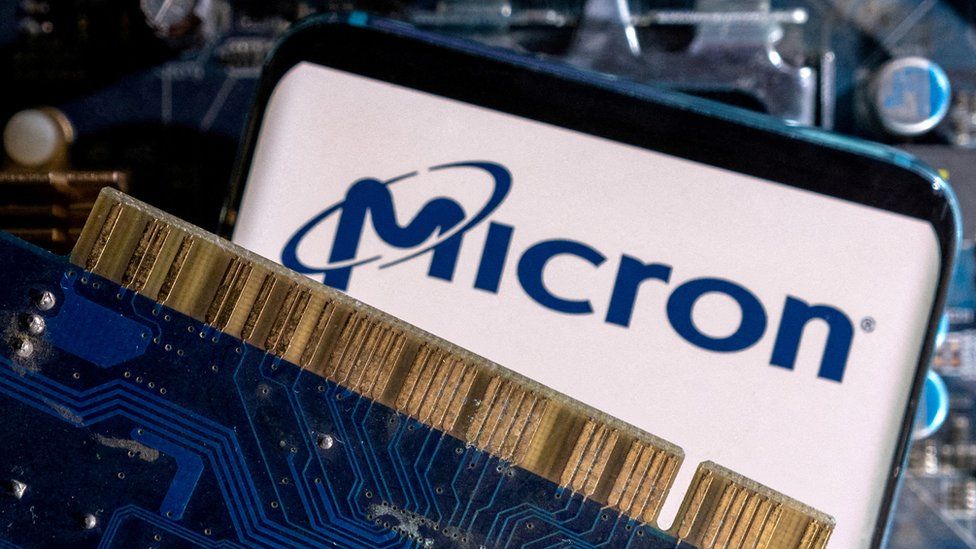-
Published

China says products made by US memory chip giant Micron Technology are a national security risk.
The country’s cyberspace regulator announced on Sunday that America’s biggest maker of memory chips poses “serious network security risks”.
It means the firm’s products will be banned from key infrastructure projects in the world’s second largest economy.
It is China’s first major move against a US chip maker, as tensions increase between Beijing and Washington.
The announcement is the latest development in a deepening row between the US and China over the technology crucial to economies around the world.
The long-running dispute has seen Washington impose a series of measures against Beijing’s chip making industry and invest billions of dollars to boost America’s semiconductor sector.
In a statement, the Cyberspace Administration of China (CAC) said: “The review found that Micron’s products have serious network security risks, which pose significant security risks to China’s critical information infrastructure supply chain, affecting China’s national security.”
The CAC did not give details of the risks it said it had found or in which Micron products it had found them.
A Micron spokesperson confirmed to the BBC that the company had “received the CAC’s notice following its review of Micron products sold in China”.
“We are evaluating the conclusion and assessing our next steps. We look forward to continuing to engage in discussions with Chinese authorities,” they added.
In response, the US government said it would work with allies to address what it called “distortions of the memory chip market caused by China’s actions”.
“We firmly oppose restrictions that have no basis in fact,” a US Commerce Department spokesperson said.
“This action, along with recent raids and targeting of other American firms, is inconsistent with [China’s] assertions that it is opening its markets and committed to a transparent regulatory framework.”
Micron’s share price tumbled by 5.3% in pre-market trading in the US.
Analysts at investment banking group Jefferies said “the ultimate impact [of the ban] on Micron will be quite limited” because it does not rely on the Chinese government or telecommunication for most of the sales it generates in the country.
Micron’s chip customers in China are mostly concentrated in smartphones and personal computers.
But CJ Muse, an analyst at Evercore ISI, said there was a risk that Micron customers in China might move away from the firm to its rivals Samsung and SK Hynix, both of which are based in South Korea.
“The US, meantime, has urged South Korea not to fill any China shortfalls,” he said.
China is a key market for Micron and generated around 10% of its full-year sales. In 2022, Micron reported total revenue of $30.7bn (£24.6bn), of which $3.3bn came from mainland China.
It also has manufacturing facilities in the country.
The CAC’s announcement came a day after a G7 leaders meeting in Japan issued a joint statement which criticised China, including its use of “economic coercion”.
On Sunday, US President Joe Biden said G7 nations were looking to “de-risk and diversify our relationship with China”.
“That means taking steps to diversify our supply chains,” he added.
Micron chief executive Sanjay Mehrotra attended the summit in Hiroshima as part of a group of business leaders.
Last week, the company said it would invest around 500bn yen ($3.6bn; £2.9bn) to develop technology in Japan.
